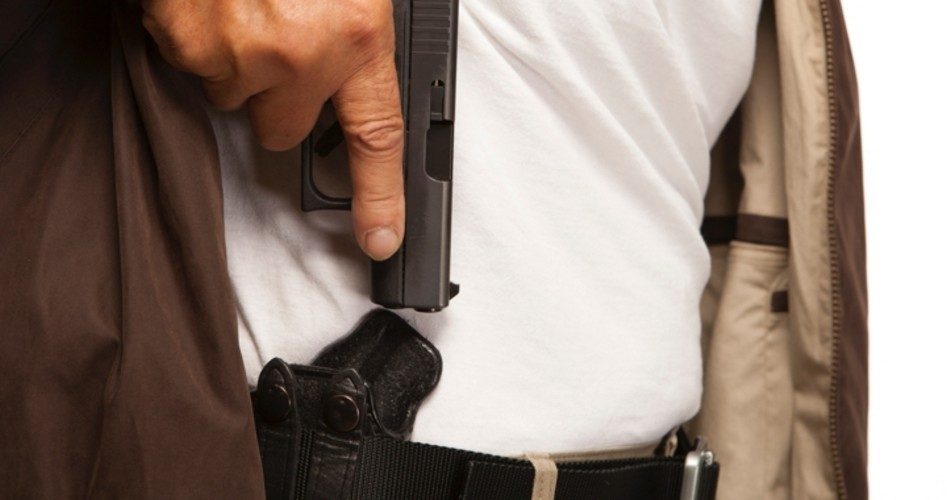
Podcast: Play in new window | Download ()
Subscribe: Android | RSS | More
Whenever the FBI updates its monthly report on NICS (National Instant Criminal Background Check System) firearm background checks it notes that the numbers “do not represent the number of firearms sold.” That’s because the background checks are performed on people attempting to purchase a firearm from a licensed firearms dealer, and do not reflect the number of guns an individual might be buying at that moment in time, not does it account for private firearms sales.
So, a fair question to ask, in light of the record-setting two million background checks every month for the first six months of 2019, is: What is driving those numbers to new highs?
There have been more than two million background checks a month for the last nine months straight, a record going back to the start of the NICS in 1998 as part of the Brady Bill. The same question applies: What’s going on to drive background checks to more than two million a month?
There is some political influence, of course. Background checks jumped in November of 2008 when it became clear that Barack Obama was going to be president. They jumped again in November 2012 when he won reelection. He has been tagged as “America’s No. 1 Gun Salesman” as citizens rushed to purchase firearms before new restrictions on their right to do so were enacted. Background checks also jumped just prior to the November 2016 election when nearly every poll showed anti-gun Hillary Clinton winning the presidential election.
{modulepos inner_text_ad}
Criminal events also impacted background checks. For instance, during the month of December 2015, the San Bernardino attack by two Muslims (that left 14 people dead and another 22 seriously injured — the deadliest mass shooting in the U.S. since the 2012 Sandy Hook Elementary School shooting) raised concerns about more restrictions on gun owners coming as a result. That month, background checks jumped to 3.3 million.
Part of the answer must be the number of firearm owners who are seeking concealed-carry permits, known as CCW or “concealed carry weapons” permits. As of 2018 there have been more than 17 million permits issued in the U.S.
And that only counts those who must follow state requirements for background checks as part of the permitting process. An increasing number of states are repealing or setting aside the requirement for concealed-carry permits in order for citizens to carry firearms in public.
Irrefutable is the conclusion that John Lott, founder and president of the Crime Prevention Research Center and author of More Guns, Less Crime, arrived at in 1998. He has updated his work in subsequent printings of his book that confirmed his conclusions. Those conclusions have been confirmed and validated elsewhere.
Using FBI numbers, the violent crime rate in the United States fell by 49 percent between 1993 and 2017. Using data from the Bureau of Justice Statistics (BJS) the rate fell by 74 percent during that period. And the impact on property crimes has been equally impressive, falling from 351 property crimes per 1,000 households (using BJS data) in 1993 to 108 in 2017 (the last full year for which data is available).
In total, there have been more than 230 million background checks initiated since 1998, with just 1.6 million denials, or less than seven-tenths of one percent. This leads one to ask: Just what impact on the previously mentioned decline in crime have those background checks had? Lott answered that question, writing for The Hill in 2017: “Research looking a U.S. data has consistently found no evidence that any type of background checks reduce rates of violent crime.” Lott expanded on his theme a few months later: Background-check denials might actually result in increased violent crime. In his opinion piece published by the New York Times, Lott criticized the NICS for the thousands of denials based on “false positives” — those with names similar to those legitimately denied. Lott also notes that fees charged applicants in some areas of the country are so high that they keep lower-income individuals from applying for their CCW permit, thus exposing them to criminal elements with less than adequate means of self-defense.
What conclusions can be drawn from the historic background checks? First, background checks have little or no positive impact on gun violence and may actually have a negative impact. Second, it may measure a more subtle but profound change in the culture: More and more law-abiding citizens are increasingly enjoying the individual freedom to “keep and bear arms” not only by purchasing more of them, but carrying them with them as a means of self-defense. This is having the predictable and salutary effect of reducing all manner of crimes, as criminals increasingly don’t know who’s carrying a tool of self-defense and who isn’t.
An Ivy League graduate and former investment advisor, Bob is a regular contributor to The New American, writing primarily on economics and politics. He can be reached at [email protected].


